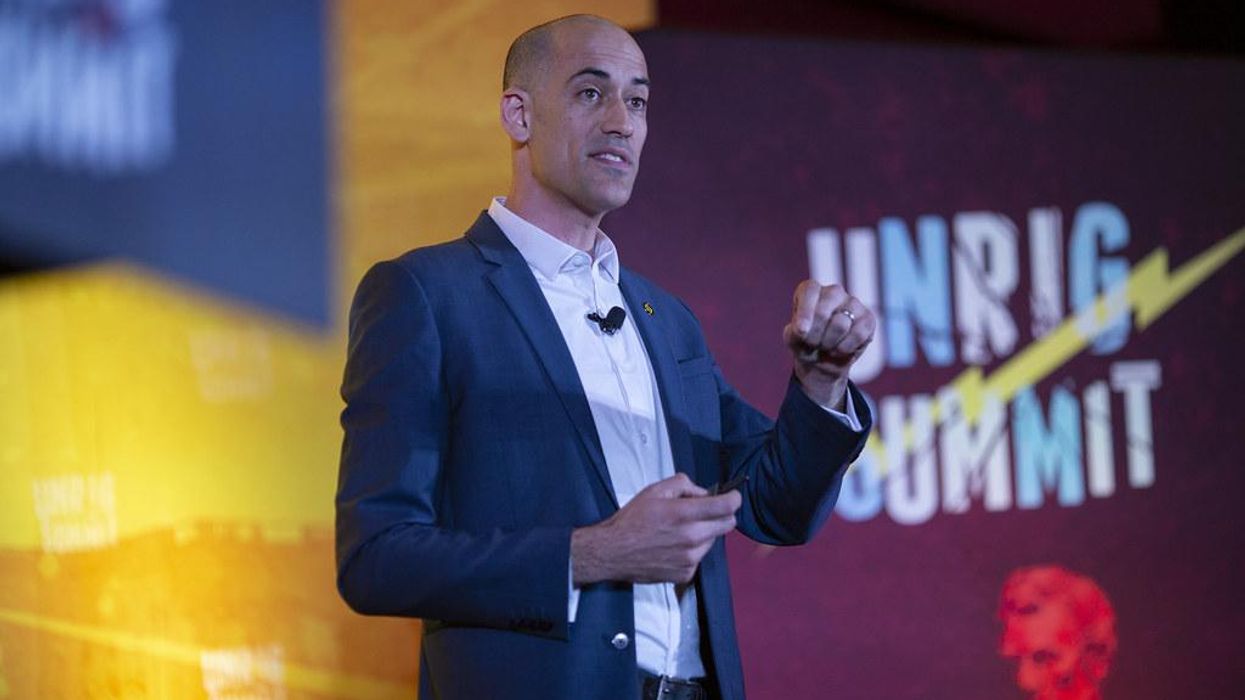Growing a movement: Inter-movement convenings
Molineaux is co-publisher of The Fulcrum and president/CEO of the Bridge Alliance Education Fund. Christen is a lawyer, a senior officer in the Navy Reserve JAG Corps, a seminarian, and a member of an independent Critical Connections team catalyzing inter-movement community and capacity building among democracy and civic health-promoting organizations to achieve collective impact. All stated opinions are his own and do not represent the positions of the U.S. Navy.
Like the interstate highway system made travel by car easier across the United States, our democracy ecosystem needs inter-movement work to attract and retain more Americans dedicated to a new way of being citizens.
Who we know and who they know has more influence on – and is a better predictor of – our ability to innovate, what actions we decide to take, and our ultimate success than our own capabilities and attributes. When it comes to building a movement, many aligned and misaligned people and their organizations need deeper and broader relationships to bring the movement to fruition.
In this case, our shared movement goals are 1) to protect and upgrade democratic values and 2) promote civic health for the long term. The wonky term “inter-movement” is being used to describe this growing community of relational organizing amongst pro-democracy leaders from across the political spectrum. Before we had the interstate system, we had a disjointed collection of state highways and backroads to get across the country. While Route 66 is now iconic, it wasn’t efficient. In much the same way, the inter-movement approach to organizing this ecosystem seeks to meaningfully connect the matrix of intra-movement relationships together to maximize collective effectiveness and efficiency.
In recognition of the self-induced effectiveness cap that comes from siloed or limited relationships, many key actors in the “democracy ecosystem” are looking beyond their own focus areas to proactively seek out meaningful relationships with counterparts from across the ecosystem. This inter-movement approach to community building is becoming increasingly visible as more and more convenings are bringing together people and organizations from multiple fields to innovate solutions together.
One such inter-movement strategy meeting was convened on Sept. 12, featuring two dozen leaders representing the sub-groupings like the bridging the divides field, the structural reform field, colleagues focused on new narratives and solution voters, and inter-movement cross-pollinators and strategists. This convening featured a generative discussion about how the democracy ecosystem can optimally connect, align, and organize to be relevant and responsive to everyday Americans – in other words, how do we organize ourselves? The meeting highlighted numerous upcoming opportunities for cross-field participation and for incorporating these inter-movement topics into agendas and discussions to further organize and grow the movement.
Upcoming connected convenings
Here are a few significant upcoming events that will bring groups together:
- The National Association of Non-Partisan Reformers Annual Summit will be held Dec. 7-9, 2022 in San Diego. While primarily focused on structural reforms, NANR is inviting organizations in other fields to sponsor inter-movement conversations during the summit.
- The American Democracy Summit, the newest evolution of RepresentUs’ game-changing Non-Partisan Conference to Unrig the System, has been rescheduled for the spring of 2023. In the lead-up to the in-person summit, RepresentUs is also hosting the American Democracy Summit virtual series featuring a variety of structural reforms topics.
- As part of their “More Perfect” campaign, the Partnership for American Democracy and its partner organizations are hosting a series of "action-forcing" convenings, including upcoming events focused on service, bridging divides and trusted information.
- Introducing a novel form of cross-partisanship through an “open party” that welcomes anyone willing to put the needs of the country over partisanship, the Forward Party is hosting a flood of local and national events, including its national kickoff event in Austin, Texas, on Sept. 24, 2022. As the Forward Party has expressed a desire to support the efforts of the democracy ecosystem, these events may present opportunities to form valuable local and national connections between the party and the existing ecosystem.
As the size of the democracy ecosystem continues to rapidly expand, new organizational leaders’ ability to comprehend and find their place in the ecosystem becomes increasingly difficult. New leaders and citizens find themselves on the disjointed state highway systems without a map to get where they want to go.
People come to the democracy system following a moment of awakening – that call to become involved in shoring up our democratic values. Each of us knows what our moment was. What happens next will typically follow one of two paths. First is the researcher who begins the Google searches and 1-1 interviews to join the work. Second is the entrepreneur who starts their own solution to protect and strengthen democracy, then discovers the ecosystem and struggles to find their place in it. The Horizons Project has made a resource to help these newcomers make sense of the ecosystem.
Citizen Connect (like The Fulcrum, a project of the Bridge Alliance) was also launched in 2021 as a one-stop shop to help match newcomers to existing organizations. With nearly 600 organizations, their events, and their on-demand content available in one location, it is an invaluable pathway for organizations and everyday Americans to participate in movement efforts. For the researchers, it’s a treasure trove of information. For the entrepreneurs, it’s a place to join. Widespread promotion of the platform will help everyone find something of interest in one or two clicks.
Inter-movement community building is the first step towards the democracy ecosystem more effectively and collaboratively responding to our collective challenges. By connecting in-person at upcoming convenings, relational organizing will provide opportunities for collective impact. Preparing for collective impact will give the entire inter-movement community the tools necessary to be more effective, efficient, resilient, and responsive to whatever democracy needs today, tomorrow, and in the future. The remaining question then is what inter-movement conversations are not currently happening that you can host?



















Trump & Hegseth gave Mark Kelly a huge 2028 gift